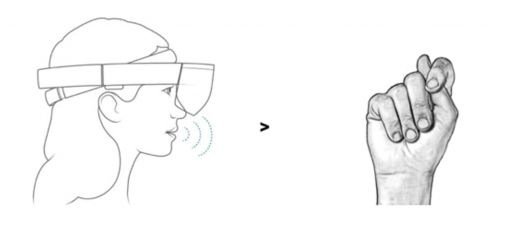VR “Exergaming” for Weight Loss
Recently, it was reported that a man lost 50 lbs just by playing a virtual reality game on the HTC Vive. In the above video, Dr. Bertalan Mesko talks about a new emerging athlete: gamers. And the following article looks at the clinical benefits of virtual reality when it comes to social support, body image and “exergaming”.
Via Instant Knockout
You understand the importance of eating well and exercising frequency for weight loss. And so far you’ve seen some good progress.
But you’re beginning to realize though that building positive habits and behaviour can be hard – so you’ll definitely not turn the other cheek when it comes to support or help.
In this article we’ll take a look at virtual reality – a type of tech that all major smart phone and console manufacturers are turning to.
Could this immersive, real-world simulating software be the key to weight loss?
Let’s find out…
Virtual Reality Support Groups
VR enhances social support, learning and training environments.
It allows you to practice piloting a plane, driving a car or tank or even performing an operation. It has also been used successfully in PTSD counselling, binge eating management and body image education too.
And the diverse nature of immersive reality technology doesn’t stop there either.
Research has reported that social support groups and networks can enhance the success of weight loss programs. Discussion forums in particular have been found to boost successful weight loss by improving accountability, friendly competition, humor and recognition.
A 2011 study by Fukuoka et al found that mobile virtual communities improve healthy behavior in overweight individuals. This included real-time social support, access to professional care and advice and of course motivation to succeed.
So could virtual reality support groups actually change your ‘cyberpsychology’ and help with weight loss? There’s a surprising amount of research that says yes.
Key Point: Virtual reality can be used to create visual experiences that mirror real life. It has been used in gaming, education and support groups.
Virtual Reality for Weight Loss
Losing weight can be a challenge. For some, the best way to succeed is to get support from like-minded individuals who are in a similar position as you rather than going it alone.
But it’s easier said than done to find those people. And not all support groups are accessible or convenient for a busy, working person either.
Some of you of course might not feel confident or comfortable enough to go to support meetings either.
A big problem for those wanting to lose weight is positive behavior change. You know how to lose weight, but you just find it difficult to make changes to your lifestyle. Forming habits that boost and sustain your progress is just a stretch too far.
This is where virtual reality comes in.
What Do The Studies Say?
Study #1: Using Avatars to Model Weight Loss Behaviors: Participant Attitudes and Technology Development
This study, from the George Washington University School of Public Health and Health Services, wanted to see if watching VR avatars participate in healthy habits had any affect on real-world weight loss.
Each of the 128 volunteers had already tried to lose weight but without success. Researchers wanted to see if an avatar program could help them model behavior and skills that would result in weight loss.
Each of the women created their own avatar character and these were then integrated into scenarios such as grocery shopping or exercising. The volunteers simply had to watch the videos and ‘visualize’ healthy behavior.
By the end of the 4-week study the women had lost just under 4 pounds. That’s not a massive amount but the habits they formed during the study would help them much more in the long-term.
Study #2: Improving weight maintenance using virtual reality (Second Life)
Published in the Journal of Nutrition Education and Behavior, this study found that a virtual reality clinic – what they called the second life – was just as effective as face-to-face for weight loss.
In the study, 20 obese participants were randomly assigned to either a VR or face-to-face group for weekly clinics over a 3-month period in combination with a calorie-restricted diet and regular physical activity. This was followed up by a 6-month VR weight maintenance period.
When the results were analyzed, the face-to-face group had lost 10.8% of their body weight. The VR group had lost a little less with 7.6%.
Interestingly though the VR group managed to maintain their weight loss much better – 14.0% as opposed to 9.5% in the face-to-face group. They also ate healthier food than their non-simulated counterparts.
Study #3: Development of and Feedback on a Fully Automated Virtual Reality System for Online Training in Weight Management Skills
Behavioral weight management skills were analyzed in this study from the Journal of Diabetes Science and Technology.
In the study, the research team found that using virtual reality technology provided a safe environment for observing, learning and behavioral management skills therefore could help with weight loss.
Their Experience Success program, which was populated by virtual actors, allowed volunteers to experiment with different behavioral skills and ways to cope when progress wasn’t going well.
All of the volunteers reported that the program gave them greater skills, confidence, and commitment for controlling eating in social situations.
Key Point: Virtual reality has been shown to help build positive, healthy behaviour that supports weight loss.
Virtual Reality Fitness – Exergaming
VR doesn’t just help with support and social networking though. You can also use it to workout too.
Exergaming, otherwise known as ‘kinetic gaming’ is the term used for integrating exercise into video games. It’s a great way to boost physical activity in a way that is fun, safe and adaptable.
This technology typically use motion sensors and specialized controllers to allow the user to control the movement of an avatar. This allows you to then simulate playing sports such as soccer, basketball, skiing or ten pin bowling.
So far, clinical trials have supported these devices as a way of upping calorie burn.
One study found that energy expenditure increased by 68% when activity-promoting videos games were played. This was in comparison to 12% for watching TV or 13% playing standard video games.
Alternatively, many commercial gym equipment manufacturers are integrating digital interfaces into treadmills, cycles and steppers. This allows you to travel around different landscapes and areas virtually.
Summary – Virtual Reality and Weight Loss
In conclusion, virtual reality is a great way to improve your body. It allows you to replicate the social support setting of a weight loss club, and where applicable allows access to professional and behavioural learning that can help with long-term success.
Using virtual reality exergaming is also a great way to boost calorie burn in a fun way that can help you workout from the comfort of your own home.
Although this technology won’t replace the need for a healthy diet and exercise program, it does add some extra assistance to help you get the physique you are after.




What do you think?
1 Community thoughts on "VR “Exergaming” for Weight Loss"
[…] See what virtual reality “exergaming” can do for weight loss […]